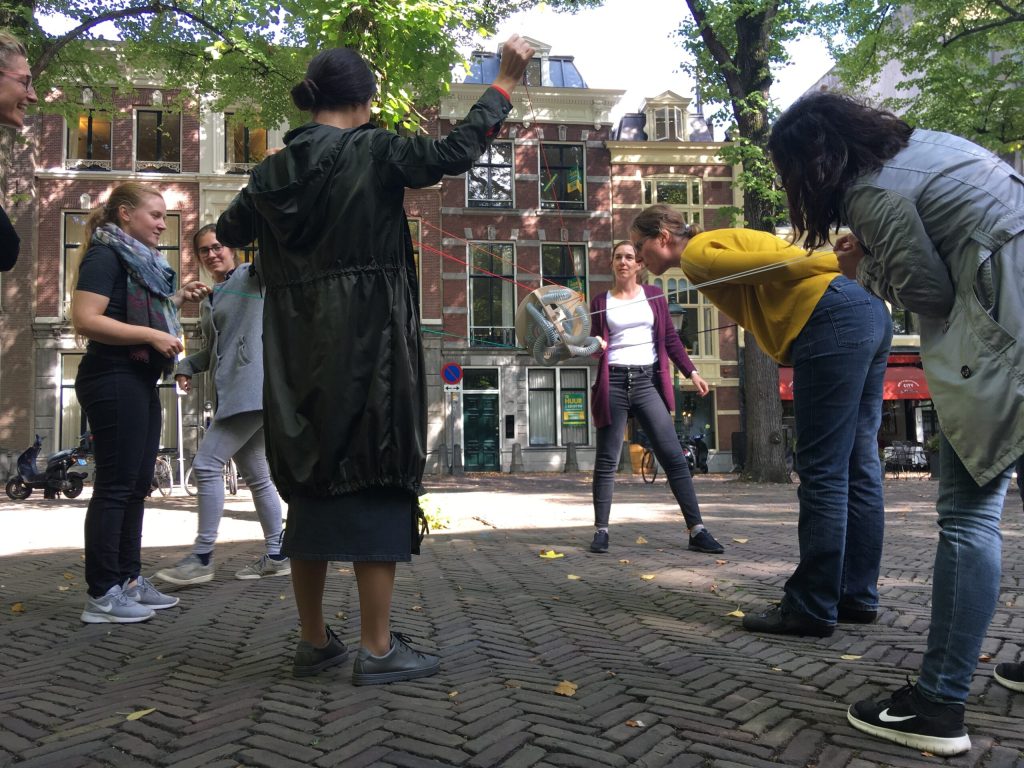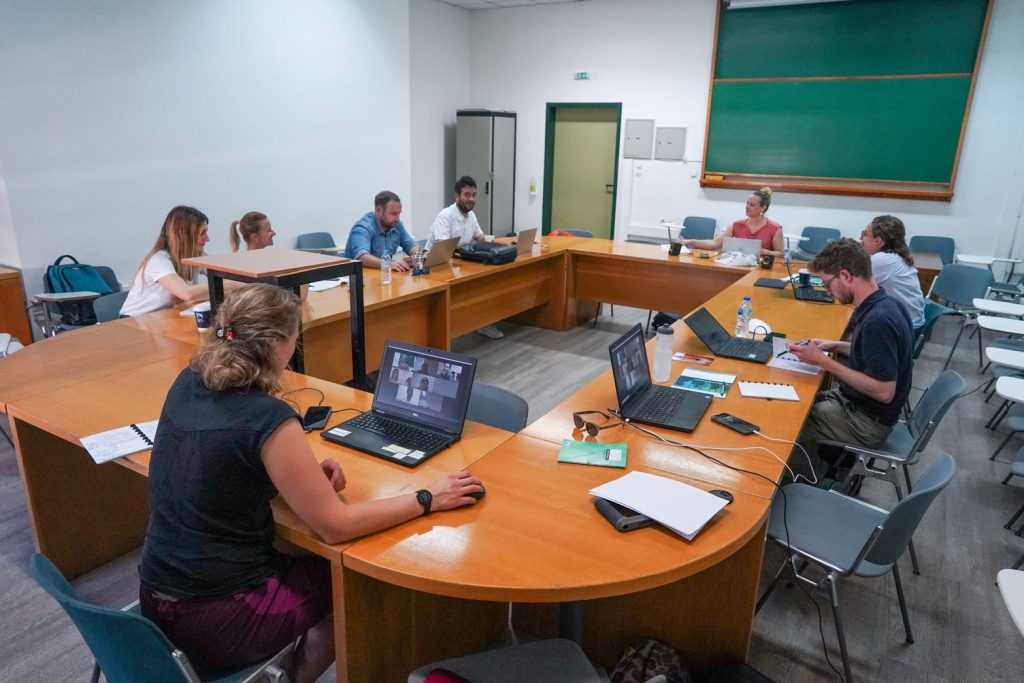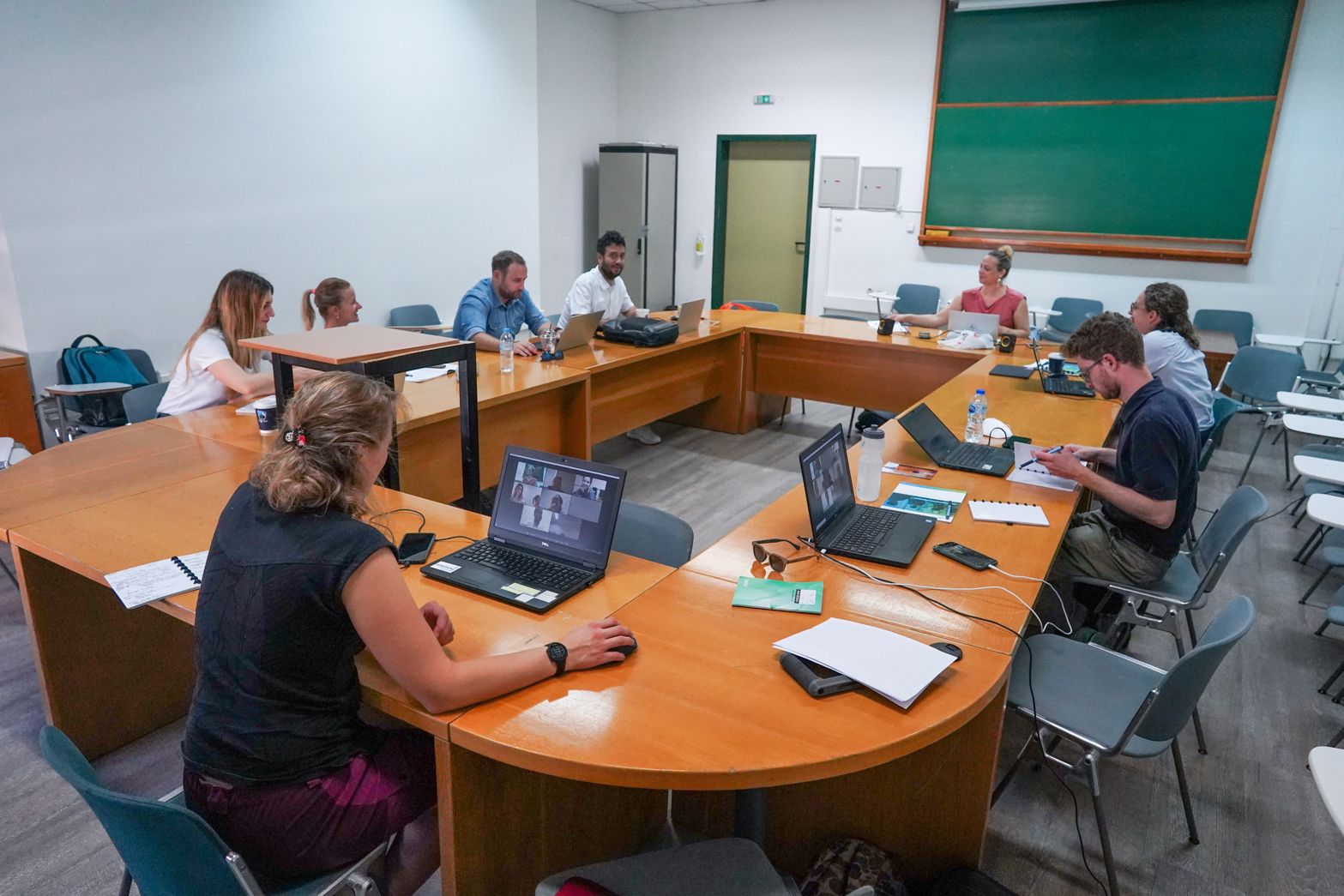

“Zoom fatigue” is a new term for declining energy and focus as a result of numerous online sessions during a day. Several measures can help reduce this effect, including balancing types of activities, frequent short brakes, assigning roles in discussions, letting students lead online activities, and making space for fun with gamification. Educators need to reinvent their teaching approach towards forms of collaborative active learning – with the proper tools to make it rewarding for both students and teachers.
Professional group facilitation through productive workshops is the best approach to developing an effective collaborative culture between teachers, students and other stakeholders. However, many European education and training organizations do not have the resources or desire to hire effective workshop facilitators, so other types of assistance have more potential.
The main learning goal of serious games for training is to stimulate optimization and motivate users to solve problems empirically. Preliminary game experience shows that most trainees do a poor job of identifying problems that need to be solved. They instead tend to employ a trial-and-error method of exploring outcomes of different interventions, without noticing the causes and effects. Improved learning paths can be created with professional facilitation in strategic use of ICT and virtual collaboration tools. The three serious games within this scope are: SIM4NEXUS, SIMBETHEL and eCity.
Led by H2O-People
Duration: 2021-09-01/2022-08-31
Summary:
Applying augmented collaboration tools in the water sector and in water education is a key step towards equipping early career professionals and future water-sector professionals with new skills in digitalization and readiness to adapt to emerging challenges. The Covid-19 pandemic revealed the need to accelerate this digital readiness.
The augmented collaboration toolkit is being developed to support trainers and teachers within higher education and LLL programs, as a support for serious games to create a shared narrative, and for the skills to work in digital environments. It has been jointly designed through the academia and Lifelong Learning programs.
The toolkit is created using:
– Digital tools: Miro, GroupMap and How space.
– Collaborative skill development tools: InterVision (peer-coaching) methodology, Deep Democracy (Lewis) and
Culture Mapping Tool (Erin Meyer)
The target audience:
A range of stakeholders is in focus including educators, students, practitioners, experts, specialists, decision-makers, and researchers.
An augmented collaboration toolkit which connects virtual collaboration tools and tools for skill development, which will support the learning experience of serious games within the water sector.
AUGMENTED COLLABORATION TOOLKIT

Led by UTH
Duration: 2021-09-01/2022-08-31
Summary:
By introducing different case studies, SMARTEN will deliver data and information on updating SDGs at both European and global level, while bringing advanced scientific data on the Nexus under the influence of climate change. The pathway to achieve this, includes activities on analysis of stakeholders, identification of best practices and development of a methodological approach for seamless learning through virtual, blended, and physical interactions; development of teaching and training digital content; self-evaluation multiple-choice quizzes for learners; tools for stakeholders’ engagement; demonstration, validation, evaluation, and dissemination of the developments. These will lead to the implementation of serious games in water education and lifelong learning, including upgraded water-related curricula of the partner universities with teaching and learning modules that include water-oriented serious games.
The target audience:
The target groups are university students and teachers, who are usually well-trained when it comes to the technical issues but lack the knowledge of the system complexity formed in a social system with conflicting interests and different resource use patterns. Target groups also include citizens, policymakers and young professionals who may be involved in lifelong learning programs.
SMARTEN will deliver an innovative product that deals with the SDGs and will interact with a range of interested citizens-scientists, researchers, and students. The material created will be highly transferrable, as it will be digital and will be tested in various settings and countries facing different realities. All modules will be designed in a way that will take into account cultural differences in order to make them transferrable.
IO3-Case studies for research-based learning with serious games

Led by UNI
Duration: 2021-03-01/2022-06-30
Summary:
Due to the COVID-19 challenge, education leaders must swiftly design responses with specific contexts in mind transforming traditional learning into online using e-modules. It is needed to establish effective forms of online education that will free up institutional capacities and resources in order to redirect their focus on delivering alternative (online) learning methods for students and LLL practitioners. Online learners should be motivated to take the course, to complete the course or to come back and attempt to do better. Adding game mechanics in course designing and behavior-based solutions can be solutions to immerse learners wisely. On the other hand, using a Learning Management System (LMS) with robust reporting and analytics will help us to track online learner performance and e-learning effectiveness.
The target audience:
E-modules for serious games will be developed to motivate online learners (teaching staff, students, and professionals from water sector) to succeed and inspire them to achieve their true potential. In order to build skills, online learners should overcome a series of in-game obstacles.

Using developed SMARTEN e-modules for serious games will have as a result that online learners get the immediate feedback, they need to identify areas for improvement. Also, they can see the outcome and repercussions of their behaviors before they enter the real world. Defined serious games methodology, way to get learning objectives and add game mechanics can help researchers to easily implement learning strategy in their scientific field different from water by taking the developed SMARTEN e-modules and their customization to their needs.
IO4-ELearning-modules-for-serious-games
AdaptivePlanning_SCORM SingleSCOC
CircularEconomy_SCORM SingleSCO

